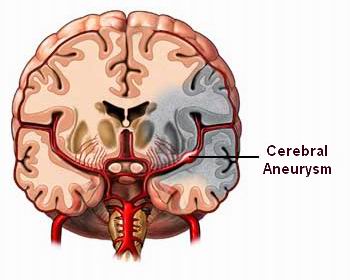
Brain surgery refers to a variety of surgical procedures that are performed on the brain to treat conditions affecting the brain’s structure and function. It can be required for a wide range of neurological conditions, including brain tumors, traumatic brain injuries, vascular abnormalities, epilepsy, infections, and congenital conditions.
Brain surgery is typically performed by a neurosurgeon—a specialized surgeon with expertise in treating disorders of the brain, spine, and nervous system. The complexity of brain surgery stems from the delicate nature of the brain tissue and the importance of avoiding damage to critical areas responsible for speech, movement, vision, and other essential functions.
There are several different types of brain surgery, including craniotomy, stereotactic surgery, awake brain surgery, and deep brain stimulation (DBS). Each type is tailored to the specific condition being treated, and advancements in neurosurgical techniques, as well as imaging technology, have improved outcomes for patients undergoing brain surgery.
Brain surgery may be necessary due to a wide range of neurological conditions that impair brain function or cause damage. Some of the most common causes and risk factors that may lead to brain surgery include:
1. Brain Tumors:
-
Primary Brain Tumors: These are tumors that originate in the brain itself, such as gliomas, meningiomas, or astrocytomas. Surgery may be needed to remove or biopsy the tumor.
-
Metastatic Brain Tumors: Tumors that have spread to the brain from other parts of the body (e.g., lung, breast, colon cancer) often require surgical intervention to alleviate symptoms and control growth.
2. Traumatic Brain Injury (TBI):
-
Brain surgery may be necessary in cases of severe head trauma that results in brain hemorrhage, skull fractures, or brain swelling. Surgery can help remove blood clots or repair damage to brain tissue.
3. Aneurysms and Vascular Abnormalities:
-
A brain aneurysm is a bulging, weakened area in the wall of an artery in the brain. If an aneurysm ruptures, it can cause life-threatening bleeding (hemorrhagic stroke), necessitating surgery to repair the artery.
-
Arteriovenous malformations (AVMs) or cavernous malformations are abnormal tangles of blood vessels in the brain, which can also require surgical treatment to prevent rupture or bleeding.
4. Epilepsy:
-
In some cases of drug-resistant epilepsy, brain surgery may be performed to remove or alter the part of the brain that is causing seizures. This is typically considered when medication and other treatments have not been effective.
5. Brain Infections:
-
Infections such as abscesses, meningitis, or encephalitis may require surgical drainage to remove infected tissue or relieve pressure on the brain.
6. Hydrocephalus:
-
Hydrocephalus is a condition where excess cerebrospinal fluid (CSF) accumulates in the brain’s ventricles, leading to increased pressure. Surgical intervention, such as a shunt placement, may be needed to relieve the pressure.
7. Congenital Conditions:
-
Certain birth defects, such as hydranencephaly or Chiari malformation, may require surgical treatment to correct or alleviate symptoms.
8. Stroke:
-
In some cases, ischemic strokes (caused by blocked blood flow) or hemorrhagic strokes (caused by bleeding) may lead to brain surgery to remove clots, repair blood vessels, or relieve pressure on the brain.
9. Genetic and Environmental Risk Factors:
-
Family History: A family history of brain disorders, such as brain cancer or epilepsy, may increase an individual's risk of developing conditions requiring brain surgery.
-
Age and Gender: Certain conditions, like brain tumors and aneurysms, can be more common in specific age groups and genders. For example, glioblastoma is more common in older adults, while meningiomas are more common in women.
-
Environmental Factors: Exposure to toxic chemicals, radiation, or head trauma can increase the risk of developing conditions that may require brain surgery.
The signs and symptoms of a brain condition that may necessitate surgery depend on the underlying disorder, the location of the problem in the brain, and the extent of the damage. Common symptoms that may indicate the need for brain surgery include:
1. Neurological Symptoms:
-
Severe Headaches: Persistent or worsening headaches, particularly those that do not respond to usual treatments, can indicate pressure inside the brain.
-
Seizures: Seizures that are not controlled with medication may indicate a need for brain surgery, especially in cases of epilepsy or brain tumors.
-
Loss of Sensation or Weakness: Numbness, tingling, or weakness in the limbs, face, or body can be a sign of a brain tumor, stroke, or nerve damage.
-
Vision Problems: Blurred vision, double vision, or partial blindness can indicate damage to the visual pathways in the brain.
-
Speech Impairment: Difficulty speaking or understanding language can occur in conditions affecting the brain’s speech centers.
-
Coordination Issues: Difficulty walking, maintaining balance, or controlling movements can result from brain injury or tumors affecting the cerebellum.
2. Cognitive and Behavioral Changes:
-
Memory Loss: Difficulty with memory, concentration, or mental clarity may signal a brain tumor, stroke, or early stages of a neurodegenerative disease.
-
Personality Changes: Irritability, confusion, or sudden shifts in mood can occur due to damage to brain regions that regulate behavior and emotions.
-
Drowsiness or Fatigue: Extreme fatigue, drowsiness, or inability to stay awake can be a symptom of increased intracranial pressure from swelling or a mass.
The diagnosis of a brain condition requiring surgery involves a combination of physical, neurological, and imaging tests to evaluate brain function and locate abnormalities.
1. Physical and Neurological Examination:
-
The doctor will perform a detailed neurological exam to assess cognitive function, reflexes, strength, sensation, and coordination.
-
A thorough medical history is also important, including any prior brain injuries, surgeries, or family history of neurological conditions.
2. Imaging Tests:
-
MRI (Magnetic Resonance Imaging): MRI provides highly detailed images of the brain and is used to detect brain tumors, bleeding, swelling, and structural abnormalities.
-
CT Scan (Computed Tomography): A CT scan can quickly detect brain bleeds, skull fractures, and certain types of brain tumors.
-
PET Scan (Positron Emission Tomography): PET scans are used to identify active brain processes, and can help in detecting cancerous tumors or assessing brain function in neurological diseases.
3. Biopsy:
-
If a brain tumor is suspected, a brain biopsy may be necessary to determine the type and grade of the tumor. This is typically done during surgery.
4. Electroencephalogram (EEG):
-
An EEG records electrical activity in the brain and is often used to diagnose seizure disorders or epilepsy.
The treatment for a brain condition requiring surgery depends on the specific diagnosis, the location of the problem, and the patient’s overall health. Common brain surgery options include:
1. Craniotomy:
-
A craniotomy is the most common brain surgery, where a portion of the skull is temporarily removed to access the brain. It is used to remove brain tumors, repair brain aneurysms, or remove blood clots.
2. Stereotactic Surgery:
-
Stereotactic surgery involves using a computer-guided system to perform precise brain surgery. It is often used for deep-seated brain tumors or Parkinson's disease to implant deep brain stimulation (DBS) devices.
3. Awake Brain Surgery:
-
In some cases, awake brain surgery is performed for brain tumor removal. The patient is awake during the surgery to help the surgeon identify critical brain regions involved in speech, motor control, and other functions.
4. Deep Brain Stimulation (DBS):
-
Deep Brain Stimulation is used to treat neurological disorders like Parkinson’s disease and dystonia by implanting electrodes in the brain to send electrical impulses that regulate abnormal brain activity.
5. Shunt Surgery:
-
In cases of hydrocephalus (excess fluid in the brain), shunt surgery is performed to drain excess cerebrospinal fluid and relieve pressure on the brain.
While brain surgery may be necessary for various conditions, there are steps that can be taken to prevent and manage certain brain-related issues:
1. Preventing Brain Injury:
-
Wear protective gear such as helmets when engaging in sports or riding bikes.
-
Follow safety precautions in the workplace to prevent head injuries.
-
Use seatbelts while driving to minimize the risk of traumatic brain injury from accidents.
2. Managing Health Conditions:
-
Control high blood pressure, manage diabetes, and avoid smoking or excessive alcohol consumption to reduce the risk of stroke and vascular-related brain issues.
3. Brain Health and Cognitive Function:
-
Exercise regularly to improve blood flow to the brain.
-
Engage in mental stimulation through puzzles, reading, and learning new skills to keep the brain active and healthy.
4. Post-Surgery Rehabilitation:
-
After brain surgery, physical, occupational, and speech therapy may be necessary to help patients regain lost function and adapt to any cognitive impairments.
While brain surgery can be life-saving, there are several potential complications, including:
1. Infection:
-
There is a risk of infection at the surgery site, which may require antibiotics or further surgical intervention.
2. Bleeding:
-
Excessive bleeding during or after surgery may occur, potentially leading to increased pressure on the brain and requiring additional treatment.
3. Brain Damage:
-
While surgeons take great care to avoid damaging healthy brain tissue, some risk of damage to critical brain regions remains, which can result in permanent neurological deficits.
4. Cognitive and Motor Impairments:
-
Some patients may experience memory loss, difficulty speaking, or motor dysfunction following brain surgery, depending on the area of the brain affected.
Living with the aftermath of brain surgery involves adjusting to changes in cognitive and physical abilities. Patients may need rehabilitation, support, and lifestyle adjustments to manage the effects of surgery.
1. Rehabilitation:
-
Rehabilitation programs, including physical therapy, speech therapy, and occupational therapy, are vital to recovery and adapting to any functional changes.
2. Emotional and Psychological Support:
-
Brain surgery can have emotional and psychological effects, and mental health support is crucial to help individuals cope with changes in their abilities and recovery challenges.
3. Long-Term Follow-Up Care:
-
Long-term follow-up appointments with a neurosurgeon or other specialists are necessary to monitor recovery, manage symptoms, and detect any complications early.
1. What is brain surgery?
Brain surgery, also known as neurosurgery, is a medical procedure in which a surgeon removes, repairs, or alters part of the brain to treat various conditions such as tumors, epilepsy, blood clots, infections, or traumatic brain injuries. It can involve procedures like craniotomy, deep brain stimulation (DBS), and tumor resection, depending on the condition being treated.
2. Why is brain surgery needed?
Brain surgery is typically needed to treat conditions that affect the brain, including:
-
Brain tumors (benign or malignant).
-
Traumatic brain injuries (such as from accidents).
-
Epilepsy or other seizure disorders that do not respond to medications.
-
Cerebral aneurysms or arteriovenous malformations (AVMs).
-
Hydrocephalus (excessive accumulation of cerebrospinal fluid in the brain).
-
Chronic pain or movement disorders, such as Parkinson's disease (treated with deep brain stimulation).
3. What are the types of brain surgery?
There are several types of brain surgery, depending on the condition being treated:
-
Craniotomy: A procedure where a portion of the skull is removed to access the brain. It is often used to remove tumors or treat conditions like bleeding or infection.
-
Deep Brain Stimulation (DBS): A procedure where electrodes are implanted in specific parts of the brain to treat conditions like Parkinson's disease or essential tremor.
-
Endoscopic brain surgery: A minimally invasive surgery using small incisions and a camera to remove brain tumors or treat other conditions.
-
Stereotactic surgery: A precise method that uses 3D imaging to target small areas of the brain for treatment, often used in tumor removal or deep brain stimulation.
4. How is brain surgery performed?
Brain surgery is typically performed under general anesthesia, meaning the patient is completely unconscious during the procedure. The surgeon makes an incision in the scalp and may remove a portion of the skull (craniotomy) to access the brain. Depending on the procedure, the surgeon may remove a tumor, repair a blood vessel, implant a device, or remove damaged tissue. In some cases, advanced techniques like stereotactic navigation or neuronavigation are used to guide the surgeon to the precise area of the brain.
5. What are the risks of brain surgery?
While brain surgery is generally safe, there are some risks, including:
-
Infection at the incision site or in the brain.
-
Bleeding in the brain (hemorrhage).
-
Brain swelling or fluid buildup.
-
Nerve damage, which can lead to weakness, vision problems, speech difficulties, or other neurological impairments.
-
Seizures following the procedure.
The risks vary depending on the type of surgery and the patient’s overall health.
6. What is the recovery process like after brain surgery?
The recovery process after brain surgery varies depending on the procedure and the individual’s health. Most patients spend a few days in the hospital for monitoring and pain management. During recovery, patients may need:
-
Physical therapy to regain strength and mobility.
-
Speech therapy if there are issues with communication or swallowing.
-
Cognitive rehabilitation to help with memory or thinking problems.
Patients should avoid heavy physical activity for several weeks and follow the doctor’s recommendations to avoid complications.
7. How long does it take to recover from brain surgery?
Recovery time after brain surgery can vary depending on the type of surgery, the extent of the condition being treated, and the individual’s health. Most people can return to normal activities within 6 to 12 weeks. However, full recovery, including regaining strength and cognitive function, may take several months. Some patients may need long-term rehabilitation to recover fully.
8. What are the signs that brain surgery has been successful?
Signs that brain surgery has been successful include:
-
Improved neurological function: The patient experiences better control of movement, speech, or memory.
-
Resolution of symptoms: For example, if the surgery was to remove a tumor, the patient may experience relief from headaches or seizures.
-
Absence of complications: No signs of infection, bleeding, or other issues after the surgery.
Post-surgical imaging, such as MRI or CT scans, will also be used to confirm that the targeted area has been treated successfully.
9. Can brain surgery improve quality of life?
Yes, in many cases, brain surgery can significantly improve quality of life. For patients with conditions like brain tumors, Parkinson’s disease, or epilepsy, surgery can help reduce symptoms, improve mobility, and allow patients to live more independently. Deep brain stimulation (DBS), for example, can help manage symptoms of movement disorders, while tumor removal can alleviate headaches, seizures, or neurological deficits caused by the tumor.
10. Are there alternatives to brain surgery?
Depending on the condition, there may be non-surgical alternatives to brain surgery:
-
Medication: For conditions like epilepsy, Parkinson’s disease, or hydrocephalus, medications may help control symptoms.
-
Radiation therapy: For some brain tumors, radiation therapy may be used to shrink or eliminate the tumor.
-
Physical or cognitive therapy: In some cases, rehabilitation therapies can help improve function without surgery.
-
Minimally invasive procedures: Techniques like endoscopic surgery or stereotactic radiosurgery may be options for certain conditions, offering less risk and faster recovery.
The other Neurology Procedures are:
Few Major Hospitals for Brain Surgery are:
Thailand, Malaysia, Singapore, Turkey and India are the most cost effective locations that offer up to almost 80% savings in comparison to the US.
SurgeryPlanet facilitates a plethora of services to the medical treatment traveler also which includes, a hassle free and discounted travel option, a welcome hand at the airport on arrival, travel in an air-conditioned car, round the clock service & support. Your medical evaluation is pre arranged with the least of waiting time. Once your assessment is complete and found medically fit, the procedure is immediately scheduled without a waiting period. Please read through our Services and Testimonials to understand and select your best options.
Major Treatments Abroad: Obesity / Bariatric Surgery | Spine Surgery | Stem Cell therapy | Fertility treatment | Knee replacement in India and Thailand | Heart Surgery | Organ transplant | Ayurveda Treatment | Heart valve replacement | Hip resurfacing | Hospitals in India and Thailand for Laparoscopic Sterilization| Best hospitals in Asia | JCI & ISO certified Hospitals | Cost effective medical procedures | Healthcare tourism | Complete privacy for affordable cost | Weight loss procedures | Infertility treatment | Board certified physicians | Low cost surgeries
SurgeryPlanet is an Healthcare Facilitator and not a Medical service provider. The information provided in this website is not to be used for diagnosis or treatment of any medical condition or use for any medical purposes. We provide information solely for medical travel facilitation and do not endorse any particular health care provider, hospital, facility, destination or any healthcare service or treatment listed. We are not an agent for, or affiliated to any health care provider, or service listed in our website and is not responsible for health care services provided by them. Choice of hospital or doctor for your healthcare services is your independent decision. Consult your domestic licensed health care provider before seeking the services of any health care provider you learn about from our website.



